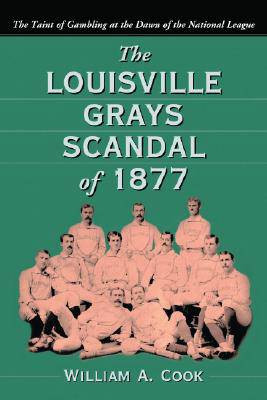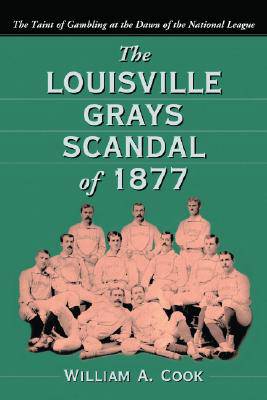
- Retrait gratuit dans votre magasin Club
- 7.000.000 titres dans notre catalogue
- Payer en toute sécurité
- Toujours un magasin près de chez vous
- Retrait gratuit dans votre magasin Club
- 7.000.0000 titres dans notre catalogue
- Payer en toute sécurité
- Toujours un magasin près de chez vous
The Louisville Grays Scandal of 1877
The Taint of Gambling at the Dawn of the National League
William A CookDescription
By the mid-1870s, gambling in baseball threatened the public's confidence in the sport and its very existence as a professional enterprise. Recognizing this, Chicago owner William A. Hulbert and seven of his colleagues formed the National League, dedicating it to such high-minded ideals as preventing contract jumping and, most importantly, eliminating gambling from the sport.
Hulbert's new league was severely threatened in 1877 by a gambling scandal that rocked its foundation. In mid-season, the Louisville Grays were the league's hottest team, but a disastrous eastern road trip caused vice president Charles Chase to question the efforts of some of his players. Sure-handed infielders were making inexplicable errors, and pitcher Jim Devlin was suddenly not as sharp as he had been previously. Chase's investigation found Devlin, A.H. Nichols, W.H. Carver, and George Hall had "sold" games, and the four were banned from the league.
This work focuses first on the formation of the National League and the changing nature of professional baseball in the 1870s. The early seasons of the league are covered, and the author gives a detailed account of the Grays' 1877 season and the evidence against the four players. Also fully explored are the impact of the Grays scandal and its lasting influence on the governance of the sport.
Spécifications
Parties prenantes
- Auteur(s) :
- Editeur:
Contenu
- Nombre de pages :
- 245
- Langue:
- Anglais
Caractéristiques
- EAN:
- 9780786421794
- Date de parution :
- 18-05-05
- Format:
- Livre broché
- Format numérique:
- Trade paperback (VS)
- Dimensions :
- 161 mm x 229 mm
- Poids :
- 344 g

Les avis
Nous publions uniquement les avis qui respectent les conditions requises. Consultez nos conditions pour les avis.






